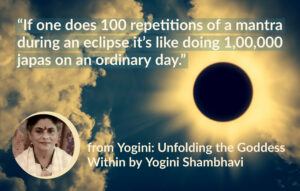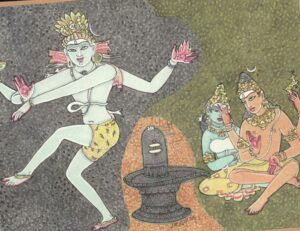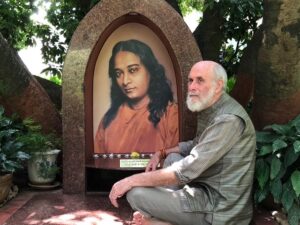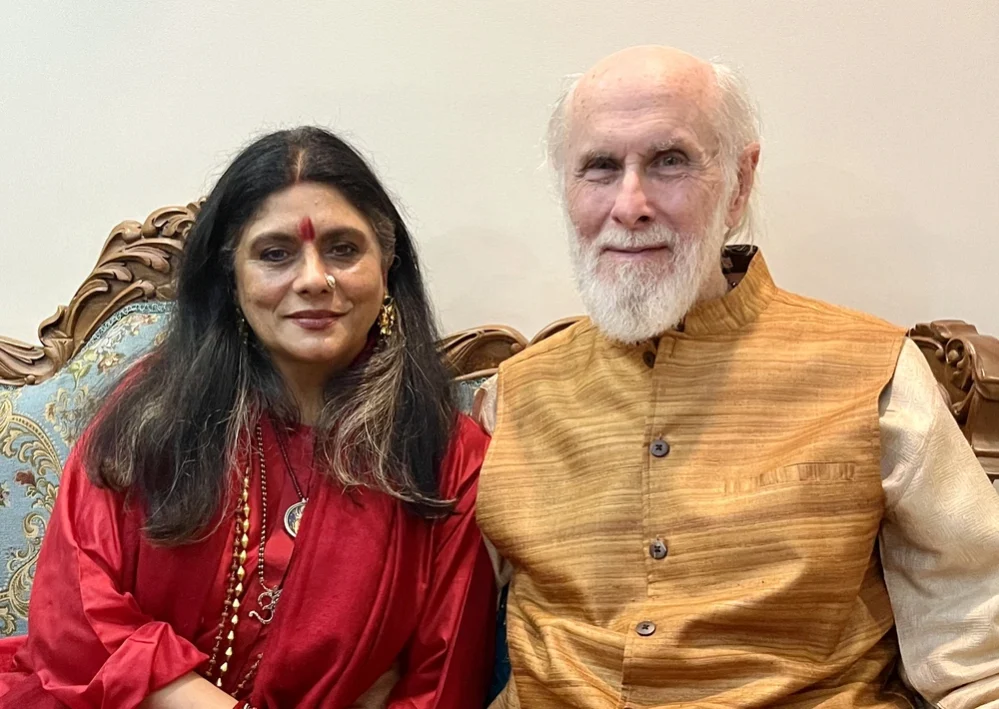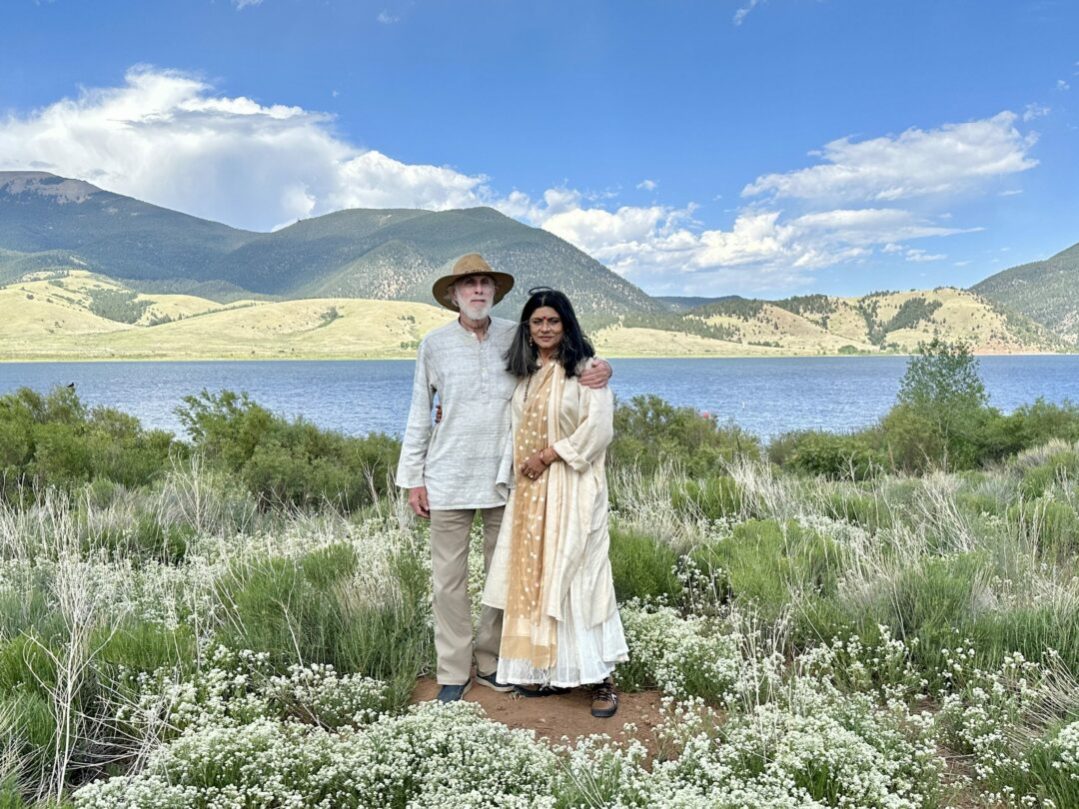The following article is authored by David Frawley (Pandit Vamadeva Shastri)
Yoga and Nature
Both Yoga and Ayurveda are all about working with the forces of nature, which are not just as material energies but powers of consciousness. This work with nature occurs at both internal and external levels. Internally, we need to balance the forces of our own nature as body, mind, breath and spirit. Externally, we need to harmonize ourselves with world of nature and with the Cosmic Spirit behind it. Each one of us is a manifestation of the entire universe and only when we discover the universe within ourselves can we really understand our purpose in life.
Yoga and Ayurveda define this working with the forces of nature according to various factors like the five elements, the three doshas, the seven chakras and different Gods and Goddesses that themselves reflect the powers of nature from sexuality to the power of consciousness itself. Our own higher nature, the Atman or Purusha, the true Self that is one with the Cosmic Being or Brahman, is the goal and focus of this process.
Yoga traditionally was practiced in retreat in nature, in the mountains and forests or by the river banks and sea shores. Yoga students cultivated gardens, took care of cattle, and learned how to live in the wild. This was an integral part of their training and allowed the natural power of Yoga to grow within them as part of their daily lives.
However, Yoga’s connection with nature and its concern for the environment is easily obscured, if not lost, in the modern Yoga movement and its urban and commercial orientation. Such a Yoga of nature is hard to fit into our modern hectic life-styles that have little time or space for something sacred to unfold of its own accord, though this is the real movement of Yoga.
But in the context of the current global crisis, Yoga’s concern for nature is more relevant than ever. It is a crucial factor in the future of the planet and of our species. This Yoga of nature is not just a matter of getting everyone to practice asanas but bringing a yogic way of integration into how we live, balancing the outer and the inner, nature and spirit, on a planetary level.
Yoga is a way of harnessing the secret powers of nature within us to manifest our own higher natural potentials for a greater awareness. This requires a very deep connection with the world of nature in body, mind and heart. It cannot be done mechanically or en masse, nor made into a franchise. It requires an individual orientation to the living world, which is not just human society but all that is.
Yoga in a World Out of Balance
Our current civilization is easily the most environmentally unfriendly ever to have arisen on the planet. It promotes various forms of exploitation both socially and environmentally that are undermining the very foundation of life for all creatures. Under its spread, the natural balance continues to fall off in a dramatic way in the world around us. Most of our current culture thinks that it is immune from needing to be concerned about nature, which we can shape according to our desires. For it, short term profits are much more important than any long term damage to the planet that might be occurring. Yet nature is already makings its voice heard.
Whether it is global warming, tidal waves, droughts and floods, Mother Nature does seem to protesting these days and this trend is likely to increase in the years and decades to come. Some of these problems may occur because we now have extensive human populations in areas that are not normally safe for habitation like deserts, flood planes, beach areas or earthquake prone region. But it more and more appears that our own human actions are disturbing the forces of the weather and geology, setting in motion energies that we may not be able to control. Global warming is just an indication of a whole range of imbalances going on in our world today that should cause us to awaken, take action and change the world while it is still possible.
On top of this environmental crisis, our current culture has a growing psychological malaise or problem in our internal psychological environment. This is easy to observe by such factors as the epidemic of depression striking young and old and the hyperactivity and attention deficit disorders rampant among children. We may have escaped the crippling physical disorders of previous generations but only to become psychologically crippled or emotionally disturbed instead. With all the affluence that we have today, few people are really happy and many people are suffering in spite or because of their wealth and longer lives.
Our culture overall is getting more and more dependent upon drugs, whether prescription drugs for physical and psychological problems or recreational drugs taken for fun. It is now estimated that around 25% of children are taking regular medications, extending to nearly 90% for the elderly. Even our blood chemistry is not natural these days. Our food similarly is largely processed and contains little natural prana in it to maintain a natural balance in our own digestive systems.
In our entertainment culture, we spend much more time with the media than with nature, so there is also little that is natural left in our field of impressions as well. Our minds are full of disturbed media images of car wrecks, sex or violence, not with the mountains, sky, water or plants around us. We have little of what Yoga calls Pratyahara or the ability to gather our energies and look within. We are overstimulated and externally driven, which in turn makes us feel empty and unstable, particularly when our entertainment is not available.
Our urban environments are largely denaturalized as well, with few of us living on the ground or in touch with it, leaving us in a situation very different than a natural life on Earth. Many people have never planted a garden and don’t know the names even of the most common plants around them. Our society has isolated itself from nature and left very little sacred space anywhere. Each generation seems to be more progressively infected with these anti-natural tendencies. It seems that nature is irrelevant to most people today, except if it can be used for some personal recreation or speed racing.
So far the United States in its role as the world’s only superpower has not served to create any real global vision or action. It has no real universal or collective concerns beyond its own short term economic or security interests. We talk about spreading democracy when our own culture has little freedom and a greater corporate control looms everywhere in our lives. The question is whether American Yoga can aid in bringing about such a change in this destructive culture. And if it cannot, what is the alternative?
A Yogic Alternative
Those of us who work in the greater yogic field would be wise to ask: How does Yoga view the current state of affairs in the world and is there a yogic way of action for dealing with it? Clearly our current society is not yogic, nor are most of the political, economic or even religious forces that dominate the world today. Their concern is not with protecting the natural balance or developing any higher awareness. They are mainly concerned with promoting their own vested interests that depend upon the exploitation of both human populations and the world of nature to maintain their own power and hegemony.
A yogic way of action to restore the natural balance is something that is seldom looked into, though yoga is all about balance. As the Bhagavad Gita states, Yoga samatva uchyate, Yoga is the state of balance. We cannot truly think or live yogically without doing so in an ecological way as well.
Unfortunately, Yoga in the West has developed more as a personal practice aimed at health and fitness at a physical level. Sometimes it borders on narcissisism with its emphasis on personal health, beauty and happiness almost to the exclusive of anything else. The conscience of Yoga that we find in the great Yogis of old doesn’t seem to be much of a factor in Yoga today. The idea of a yogic world view or a yogic critique of society is rarely addressed these days, even by yoga teachers. Many great Yogis like Vivekananda, Aurobindo, Yogananda, Tagore or Mahatma Gandhi did address broader cultural and social issues. They saw that as the essence of Yoga, which is about removing the ignorance both in and around us with the sword of knowledge.
When Mahatma Gandhi was once asked what he thought about western civilization, he responded in his humorous way with “It would be a good idea.” Clearly he was aware of the material and technological power and sophistication of the West. His response meant that the West needed a deeper spiritual view to make its material powers truly beneficial in their application. Aurobindo felt that the West could not lead the world to any greater age of peace without a fundamental change of values. This required adding a yogic vision and freedom of awareness to the outer freedom that the West had already developed. The present ecological crisis is also, therefore, an opportunity for the real soul and message of Yoga to come out.
Ayurveda and the Planet
Ayurveda similarly rests upon a foundation of respect for the conscious universe and the wise use of its powers in a way to benefit all beings. Ayurveda teaches that epidemic diseases can arise through damage to the world of nature, specifically to the water, air and soil, with damage to the soil being the worst of these factors. Clearly the quality of our water, air and soil has greatly deteriorated over the last few centuries, however much our superficial standard of living has gone up. Even our medications are turning up in our water, so pervasive is their usage. Our soils have been even more polluted than our bodies with chemicals and toxins of various sorts.
This environmental crisis brings many questions relative to health. Can we as individuals be naturally healthy in a world in which nature itself is severely compromised? Can we have an adequate immune system when the planetary immune system (the biosphere) is severely stressed? There is hardly an ecosystem on the planet that is really healthy today. Can our own ecosystem, our personal and home environment, be healthy if that is the case?
A major cause of disease in Ayurvedic diagnosis is the blocking of the channels, whether of circulation, respiration, digestion or the nervous system. When the natural flow of energy through the channels is disrupted, unnatural flows occur that cause pain and disease. Extending this principle into the world of nature, we cab see that there is hardly a river in the world that is not blocked or inhibited in its flow. Some rivers like the once mighty Colorado no longer even reach the sea. We have also suppressed the natural forest fires, which are now returning with vengeance. A suppressed natural environment, like a suppressed body must erupt in some manner of disease.
If we look at the planet with the same considerations as we would look at a patient according to the principles of natural medicine, such as Ayurveda provides, we see all the signs of a severe disease developing. Yet for all the money we spend on health and medicine, what do we spend to heal the planet which is the vessel for all that we do?
What to Do?
The last elections in the US have seen an increase in political consciousness extending into spiritual and yogic groups. Though it may have failed to change the outcome in a more yogic direction, it is still a good sign that people are ready to bring their yogic teachings into their outer lives. But the greater problem is more ecological than simply political, though it has important political ramifications. It is an issue of our life-styles, our social values and our way of looking for solutions in life. Its answers may not lie on the political left or right in the old sense but in a new vision.
Both the political right and the political left, for example, seem to be endorsing drugs as the best way to deal with our increasing health crisis. Neither has a plan to get seniors to reduce their need for drugs and increase the availability of non-drug related therapies in this regard, such as Yoga and Ayurveda can offer. So political changes, however necessary, may not in themselves be enough without a deeper change of how we look at the world.
A truly yogic life-style does of course minimize our negative impact upon the environment. The yogic emphasis on a vegetarian diet greatly reduces cruelty to animals and exploitation of natural environments. Yogic values of simplicity and self-restraint have their outer ramifications as well, removing us from the consumer world and its excesses.
But yoga is primarily about bringing a higher consciousness into the world. This has a powerful effect even when it is not recognized by others outwardly and, given the current general spiritual blindness, we cannot expect that it will be, even by our friends and families. The prana that we bring in through Yoga has a healing effect upon our environment as well as ourselves. By bringing in these higher energies, Yoga has its benefits, without recourse to external actions, which however do have their place. If we simply meditate but don’t change how we live, our meditation may only be a form of escapism or self-indulgence.
Yoga can contribute a higher consciousness and an integral way of working with the forces of life to aid in this process. It can provide a practical philosophy and spiritual methodology for the ecological movement. Ayurveda can contribute of view of both physical and psychological health based upon honoring the natural balance and showing us how to restore it.
Yoga teachers need to get out of the gym and back in touch with the greater world of nature. A good yoga teacher is not determined by how many people attend their classes or how good a workout the students receive. A good Yoga teacher helps spread the consciousness of Yoga into the lives of people and into what we do on a daily basis from our eating and sleeping to our thoughts, emotions and social activities. Ayurveda provides important guidelines in these areas as well.
True Yoga works with nature and is able to awaken the higher powers of nature within us. This is not something that can be measured or reflected in a commercial way or by marketing. Yet it is something that we can bring into Yoga classes and Yoga teachings. Bringing out the ecological and planetary importance of Yoga and Ayurveda is the real mission to be taken up – and one that has benefits far beyond any boundaries or measurements, not only for ourselves but for future generations.


